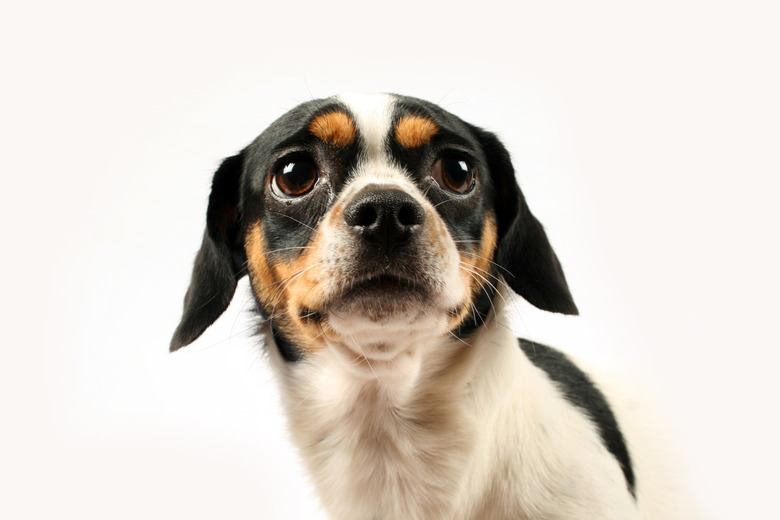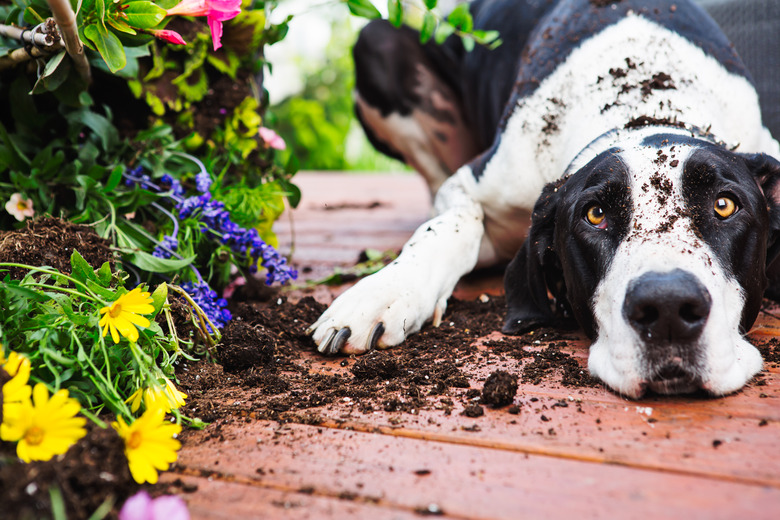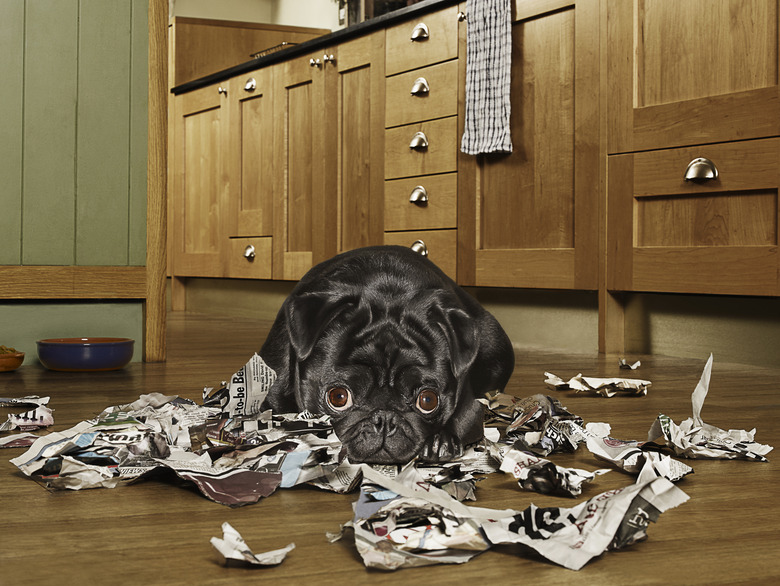Do Dogs Know When They've Done Something Wrong?
Most dog owners have had the experience of coming home to find that our pups have gotten into the EXACT thing we've been training them not to touch. Our adorable dogs stand nearby, cowering penitently as if they've never felt so awful about anything. Naturally we feel bad, because we're reading guilt in their expression and posture, and we don't necessarily want to punish them too harshly if they already feel guilty. Clearly they know what they've done, and they want to make amends.
But the question is: do dogs genuinely feel guilt? Do they actually realize that they've done something wrong? Or are humans imposing our own emotions onto them?
We do have pretty clear evidence that dogs feel emotions.
We do have pretty clear evidence that dogs feel emotions.
Science pretty much agrees that dogs feel emotions, because studies have analyzed canine brains to see that they have chemical responses similar to our brains. Dog brains release oxytocin, the happy hormone, when they feel joy, as human brains do. However, dog brains are more the equivalent of a human child, so it's unlikely that dogs develop emotions quite as complex as our emotions.
Emotions can be broken into two categories – primary and secondary – based on their complexity.
Emotions can be broken into two categories – primary and secondary – based on their complexity.
Primary emotions are the less complex emotions like happiness and fear. Scientists are pretty confident that they've proved that dogs feel these emotions. However, secondary emotions like guilt, pride, and jealousy require more complexity, and scientists aren't sure there's enough evidence of dogs experiencing these emotions. Guilt, for example, is a complex emotion that would require our dog to know that they did something wrong. However, the "guilty look" is probably more of a response to you than to their misdeed.
According to a 2009 study by Alexandra Horowitz for Behavioral Processes, dogs' guilty looks are a learned response to their humans, rather than an expression of guilt. In her study, Horowitz had owners try to keep their dogs from eating a desirable kind of treat when they left the room. The study monitored how the dogs responded when they ate the treats or didn't. Horowitz found that the dogs' behavior didn't change whether they ate the treats or didn't. Their behavior changed based on their humans' reactions. If their human scolded them, the dog behaved "guilty."
But what these studies did show is that the dogs knew or guessed that their behavior displeased their owner, so they take the submissive "guilty" posture as a way to make amends.
But what these studies did show is that the dogs knew or guessed that their behavior displeased their owner, so they take the submissive "guilty" posture as a way to make amends.
Dogs probably developed this strategy from their wolf ancestors. According to animal behavioralist Nathan H. Lents, Ph.D. writing for Psychology Today, wolf packs would often punish members by ignoring them. These social animals hate to be ignored, and to be allowed back into the group, the wolf would need to approach submissively, in the "guilty" posture that we know so well.
Our dogs may not know the morality of their right and wrong actions, but it's very likely that they know when they've done something to displease their humans. They don't like when their pack is unhappy, so they try to make nice. We have to admit, but the technique works, because we hate to see our pups look so sad and guilty.
The truth is, we may never know just how much our dogs understand.
The truth is, we may never know just how much our dogs understand.
Because our canines can't communicate, it's tough to really know what they do and do not understand. But it does appear that they know when they've done something wrong, and they are either asking for their pack's apology or trying to avoid punishment when they approach us with apparent guilt. They are definitely smart enough to act guilty to get out of too much punishment.
Because who could say no to that face?


